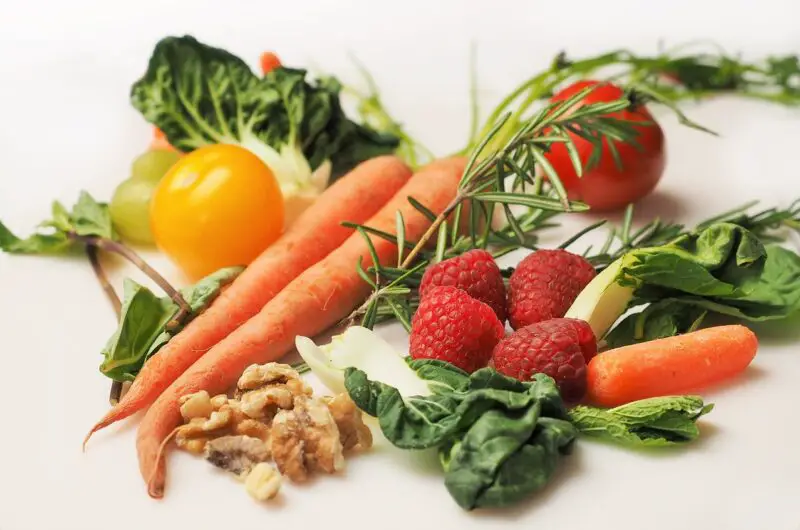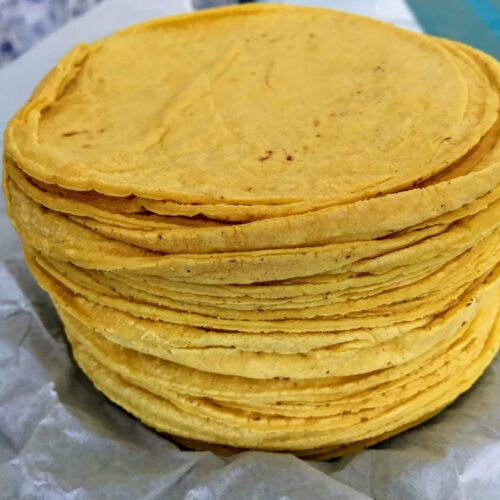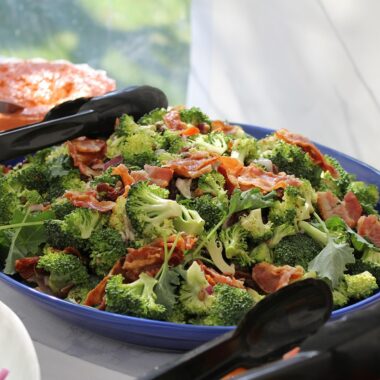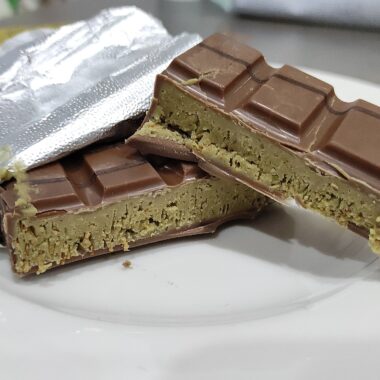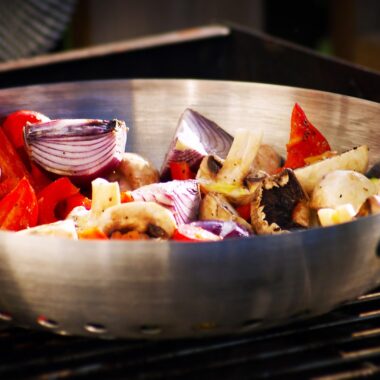Dr. Robert Atkins’ diet, widely known as the Atkins Diet, is one of the most popular low-carb diets, typically designed around animal-based proteins such as meat, fish, and eggs. However, for vegetarians and vegans, adapting to the Atkins approach may seem challenging, if not impossible, at first glance.
The good news is that vegetarian and vegan versions of the Atkins Diet can work effectively by focusing on plant-based proteins, healthy fats, and low-carb vegetables while eliminating high-carb foods like grains and starchy vegetables.
This guide will explore how vegetarians and vegans can successfully follow Dr. Atkins’ principles while maintaining their ethical and dietary choices.
Understanding the Atkins Diet and Its Phases
The Atkins Diet follows a low-carbohydrate, high-fat, and moderate-protein approach to weight loss and improved health. It is divided into four phases:
Phase 1: Induction (20–25g Net Carbs Per Day)
- The strictest phase, where carbohydrate intake is limited to 20–25 grams of net carbs daily to force the body into ketosis.
- In the traditional Atkins Diet, meat, eggs, and cheese dominate this phase.
- For vegetarians and vegans, low-carb plant-based protein sources need to replace animal products.
Phase 2: Balancing (25–50g Net Carbs Per Day)
- More carbs are introduced in the form of nuts, seeds, and berries.
- Vegetarians and vegans can expand their food choices by including more non-starchy vegetables, low-carb dairy (if applicable), and plant proteins.
Phase 3: Pre-Maintenance (50–80g Net Carbs Per Day)
- Carbs are gradually increased, allowing for more variety while maintaining weight loss progress.
- At this stage, vegetarians and vegans can add higher-carb vegetables and some legumes.
Phase 4: Maintenance (80–100g Net Carbs Per Day)
- A long-term eating plan that prevents weight regain while ensuring optimal nutrition.
- More fruits, legumes, and plant-based proteins can be incorporated.
To succeed on Atkins as a vegetarian or vegan, the key is finding plant-based, low-carb protein sources and healthy fats.
Protein Sources for Vegetarians and Vegans on Atkins
Since meat, poultry, and fish are off-limits for vegetarians and vegans, alternative low-carb, high-protein options must be utilized. Here are some suitable options:
Vegetarian-Friendly Protein Sources (Includes Dairy & Eggs)
- Eggs – A powerhouse of protein with virtually zero carbs.
- Cheese – Hard cheeses like cheddar, mozzarella, and parmesan are low in carbs.
- Greek Yogurt (Full-Fat, Unsweetened) – Contains moderate carbs but is protein-rich.
- Cottage Cheese – A good source of protein with minimal carbs.
- Paneer – A high-protein Indian cheese with a low carbohydrate count.
- Whey or Casein Protein Powder – A great supplement for vegetarians.
Vegan Protein Sources
- Tofu – A versatile protein source, with about 2g net carbs per serving.
- Tempeh – Higher in protein and lower in carbs than tofu, making it ideal for Atkins.
- Seitan (Wheat Gluten) – Extremely high in protein and low in carbs.
- Soy Protein Isolate – A processed form of soy with minimal carbs.
- Pea Protein Powder – A great plant-based supplement, often found in vegan protein shakes.
- Hemp Seeds & Hemp Protein – Low in carbs and high in protein and omega-3s.
- Almonds & Almond Butter – High in protein but should be eaten in moderation due to carbs.
Since many plant proteins come with added carbohydrates, it’s essential to track net carbs (total carbs minus fiber) to stay within Atkins limits.
Fats for Vegetarians and Vegans on Atkins
A high-fat intake is crucial for the Atkins Diet since it shifts the body from burning carbs to burning fat. Here are some of the best sources of healthy, plant-based fats:
- Avocados & Avocado Oil – High in monounsaturated fats and almost zero net carbs.
- Olive Oil – A heart-healthy fat perfect for salads and cooking.
- Coconut Oil & MCT Oil – Provide quick energy and are ketogenic-friendly.
- Nuts & Seeds – Almonds, macadamia nuts, chia seeds, flaxseeds, and walnuts (in moderation).
- Nut Butters – Unsweetened almond, macadamia, and cashew butter are good options.
- Cacao Butter – A great fat source used in keto-friendly desserts.
Avoid processed vegetable oils (corn, soybean, sunflower) as they may promote inflammation.
Low-Carb Vegetables for Atkins as a Vegetarian/Vegan
Vegetables are a key part of the Atkins diet, but starchy vegetables like potatoes, sweet potatoes, and corn should be avoided. The best low-carb, high-fiber vegetables include:
- Leafy Greens – Spinach, kale, arugula, Swiss chard
- Cruciferous Vegetables – Broccoli, cauliflower, Brussels sprouts
- Zucchini & Squash – Great for making low-carb noodles
- Mushrooms – Low in carbs and packed with nutrients
- Asparagus – High in fiber and very low in carbs
- Peppers – Eat in moderation due to their slightly higher carb content
These vegetables provide essential vitamins, minerals, and fiber while keeping carb intake low.
How to Structure an Atkins Vegetarian/Vegan Meal Plan
A well-planned Atkins meal plan ensures a proper balance of protein, fats, and low-carb vegetables. Below is a sample meal plan for vegetarians and vegans.
Sample Vegetarian Atkins Meal Plan
Breakfast:
- Scrambled eggs with spinach and feta cooked in butter
- Side of avocado
Lunch:
- Grilled paneer with sautéed zucchini and olive oil
- Mixed greens with a low-carb dressing
Dinner:
- Stir-fried tempeh with broccoli and coconut aminos
- Side of roasted cauliflower with parmesan
Sample Vegan Atkins Meal Plan
Breakfast:
- Tofu scramble with mushrooms and avocado
- Flaxseed smoothie with unsweetened almond milk
Lunch:
- Seitan stir-fry with coconut oil and green beans
- Spinach and kale salad with hemp seeds
Dinner:
- Tempeh marinated in olive oil with roasted Brussels sprouts
- Side of guacamole and low-carb flax crackers
Snacks:
- Almond butter with celery sticks
- Handful of macadamia nuts
- Coconut yogurt with chia seeds
By tracking net carbs and keeping meals nutrient-dense, both vegetarians and vegans can thrive on Atkins.
Challenges and Tips for Success
1. Getting Enough Protein
- Rely on tofu, tempeh, seitan, and protein powders.
- Incorporate nuts, seeds, and vegan protein shakes.
2. Avoiding Hidden Carbs
- Read labels carefully, especially for plant-based protein sources.
- Avoid processed vegan alternatives with added sugars and starches.
3. Staying in Ketosis
- Use coconut oil, avocados, and nuts to fuel fat intake.
- Monitor ketone levels if needed.
4. Meeting Nutrient Needs
- Consider supplements like B12, omega-3s, and iron for a well-rounded diet.
Final Thoughts: Is Atkins Possible as a Vegetarian or Vegan?
Yes! While Dr. Atkins’ Diet is traditionally centered around animal proteins, vegetarians and vegans can still follow its low-carb principles. By carefully selecting plant-based proteins, healthy fats, and non-starchy vegetables, it is entirely possible to achieve ketosis and weight loss while sticking to a vegetarian or vegan lifestyle.
Whether your goal is weight loss, blood sugar control, or overall health, a vegetarian or vegan version of Atkins can be adapted successfully with the right planning and food choices.
Would you try a low-carb vegetarian or vegan Atkins diet? Let me know your thoughts! 🚀
References
- Atkins, R. C. (2002). Dr. Atkins’ New Diet Revolution. HarperCollins Publishers.
- This book outlines the principles of the Atkins Diet, its phases, and how it works for weight loss and metabolic health.
- Westman, E. C., Phinney, S. D., & Volek, J. S. (2010). The New Atkins for a New You: The Ultimate Diet for Shedding Weight and Feeling Great Forever. Touchstone.
- A modern approach to Atkins with scientific insights into low-carb living, including plant-based adaptations.
- McDougall, J. (2006). The Starch Solution: Eat the Foods You Love, Regain Your Health, and Lose the Weight for Good!. Rodale Books.
- While promoting a high-carb approach, this book provides useful comparisons to the low-carb model, especially for vegetarians and vegans.
- Astrup, A., Meinert Larsen, T., & Harper, A. (2004). “Atkins and other low-carbohydrate diets: Hoax or an effective tool for weight loss?” The Lancet, 364(9437), 897-899.
- A scientific analysis of the efficacy of low-carb diets, including potential plant-based modifications.
- Noakes, T., & Windt, J. (2017). “Evidence that supports low-carbohydrate high-fat (LCHF) diets for health improvement.” The South African Medical Journal, 107(3), 304-305.
- This study discusses how LCHF diets can be adapted for different dietary lifestyles, including vegetarian and vegan variations.
- Gardner, C. D., Kiazand, A., Alhassan, S., Kim, S., Stafford, R. S., Balise, R. R., & King, A. C. (2007). “Comparison of the Atkins, Zone, Ornish, and LEARN diets for weight loss and heart disease risk reduction.” JAMA, 297(9), 969-977.
- A clinical trial comparing different diets, highlighting how low-carb diets can be adapted to vegetarian eating.
- American Dietetic Association. (2009). “Position of the American Dietetic Association: Vegetarian diets.” Journal of the American Dietetic Association, 109(7), 1266-1282.
- This paper discusses the health benefits of vegetarian diets and how they can be nutritionally adequate, even in a low-carb setting.
- Bazzano, L. A., Hu, T., Reynolds, K., Yao, L., Bunol, C., Liu, Y., … & He, J. (2014). “Effects of low-carbohydrate and low-fat diets: A randomized trial.” Annals of Internal Medicine, 161(5), 309-318.
- A study comparing the long-term health effects of low-carb diets with other approaches, useful for understanding plant-based low-carb adaptations.
- Davis, B., & Melina, V. (2014). Becoming Vegan: The Complete Guide to Adopting a Healthy Plant-Based Diet. Book Publishing Company.
- This book offers strategies for ensuring adequate nutrition on a vegan diet, including low-carb variations.
- Craig, W. J., & Mangels, A. R. (2009). “Position of the American Dietetic Association: Vegetarian diets.” Journal of the American Dietetic Association, 109(7), 1266-1282.
- Provides evidence-based recommendations for vegetarian and vegan diets, useful for adapting Atkins principles.
These references provide both scientific and practical insights into adapting Dr. Atkins’ Diet for vegetarian and vegan lifestyles, ensuring nutritional adequacy and effectiveness in low-carb, high-fat eating patterns.
